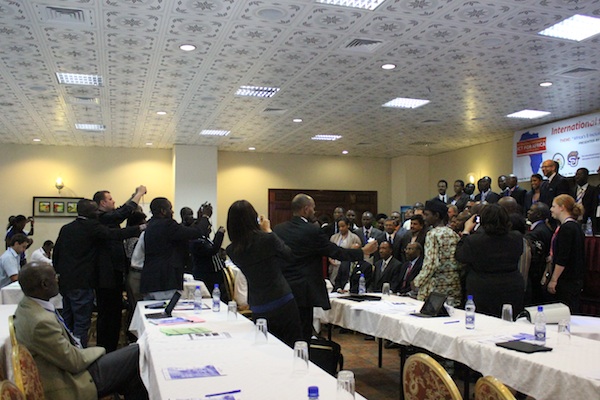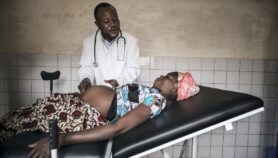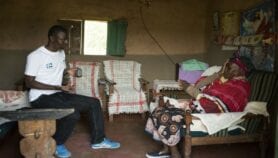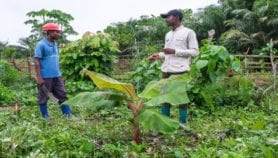Send to a friend
The details you provide on this page will not be used to send unsolicited email, and will not be sold to a 3rd party. See privacy policy.
[ADDIS ABABA] The unanimous consensus could not have been stated better: “Let us put our house in order before we embark on external activities”. This agreement came from experts and policymakers including senior government officials who gathered in Addis Ababa, Ethiopia ,last week (2-6 December) to celebrate Africa’s information and communication technology (ICT) week as part of the 50th anniversary celebration of the African Union (AU).
The experts wanted to know the position of Africa on the global map in terms of Internet connection. The experts also discussed what Africa should do to close the gaps in ICT before going into international partnerships.
The forum employed a comparative approach with reference mainly to the ICT-developed nations in Europe and America.
“This poor turnout displays a lack of commitment by a significant proportion of the membership.”
Gilbert Nakweya
Participants from the member states under the guidance of Yamfwa Mukanga—Zambia’s minister of transport, works, supply and communication—contributed to the mitigation strategies for Africa’s ICT challenges and deliberated on the way forward.
The deliberations were summarised in a communiqué to be submitted by the African Union Commission for consideration at the next session of the AU Conference of Ministers in charge of Communication and Information Technologies.
The communiqué summarised the priority ICT areas in Africa and the challenges. It alsooutlined the measures to alleviate these impediments.
Internet governance emerged as a key area of concern and the forum asked the AU Conference of Ministers to request the Brazilian government to assist African diplomats and experts to participate and contribute to the meeting on Internet governance in Sao Paulo, Brazil, next year.
The youth were not left behind. A number of training sessions and discussions were organised for the youth to help build capacity for future technology gurus. They were challenged to be imaginative and innovative in ICT to help solve the crises plaguing the continent such as poverty and inadequate food security.
Even though smart deliberations were made at the conference, doubtsarose on how the conclusions will be applied due to under-represented memberstates at the forum. Of 54 ICT ministers expected at the forum, only three turned up. This poor turnout displays a lack of commitment by a significant proportion of the membership, which could hamper the homogeneous progress of ICT across the African continent.
Some panelists at the forum expressed concern aboutthe absence of policymakers and invited government officials from memberstates. They said the absenceof such key stakeholders in ICT threatens the future of the continent’s deliberations at such a forum.
The forum discussed these issues based on the theme ‘Promoting Pan-Africanism, African Renaissance through ICT towards AU 2063 Vision’.
As the conference ended, participants agreed that Africa has the capacity to develop ICT, but requires the investment and commitment of all memberstates to realise the full potential.
This article has been produced by SciDev.Net's Sub-Saharan Africa desk.














